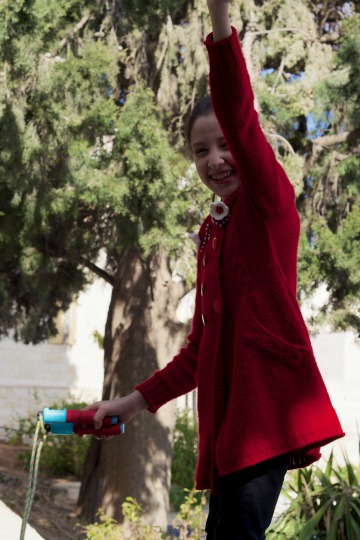 We know that pro-Israel does not mean blindly supporting policies
that are irrational, reckless, and counter-productive. Pro-Israel means supporting policies that are consistent
with Israel's interests and promote its survival as a Jewish, democratic state.
We know that pro-Israel does not mean blindly supporting policies
that are irrational, reckless, and counter-productive. Pro-Israel means supporting policies that are consistent
with Israel's interests and promote its survival as a Jewish, democratic state.
You've heard the arguments of the religious and political right-wing, and so have we. They've had their say. Now, we'll have ours.
Go HERE for all installments of APN's "They Say, We Say"
Is Peace Possible?
Criticism of Israel, even by people who claim to support Israel, only feeds the global campaign to delegitimize Israel. Public criticism of Israel has to stop.
A truly pro-Israel position is one that recognizes that criticism of Israeli policies and actions must be judged on its content. It is both true and deeply troubling that anti-Israel and anti-Semitic sentiment is sometimes cloaked in criticism of Israeli government policies and actions. At the same time, it is both true and deeply troubling that some Israeli policies and actions legitimately merit criticism.
The notion that being pro-Israel leaves no room for any criticism of Israel, on the grounds that such criticism "delegitimizes" Israel, should trouble anyone who cares about Israel's future and Israel's democratic character.
It is foolish, as well as reckless and irresponsible, for anyone to deny Israel's right to exist, call for Israel's destruction, or deny Jewish ties to the land of Israel. At the same time, criticizing and challenging Israeli policies and actions - like its continued settlement in the West Bank and East Jerusalem, its harsh treatment of non-violent protestors in Israel and the West Bank, its continued closure of Gaza, or the ongoing attacks inside Israel on democracy and democratic institutions - is entirely legitimate and, indeed, appropriate.
A vibrant debate over these issues, both in Israel and the U.S., is sorely needed. Efforts to quash all criticism/protest - whether in Israel or outside Israel - by labeling it "delegitimization" are inconsistent with the core democratic values of both Israel and the U.S. - like freedom of speech, freedom to organize, and freedom to peacefully protest.


